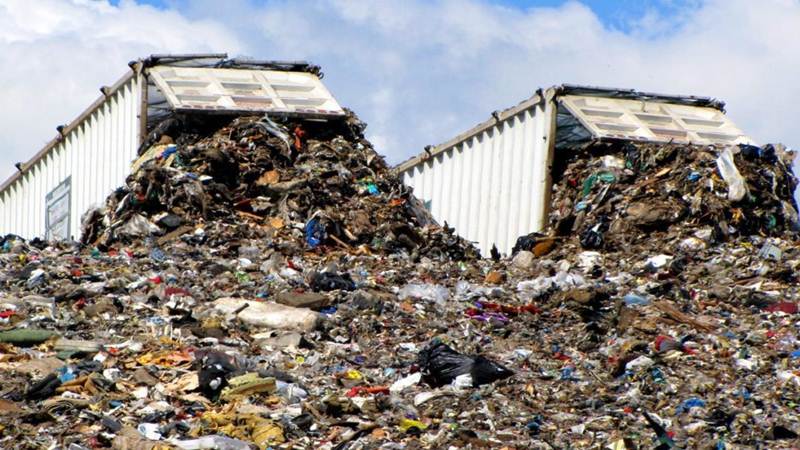Jammu and Kashmir is grappling with a significant environmental crisis, as recent data highlights alarming deficiencies in solid waste and sewage management. With a daily addition of 1026 tonnes of legacy waste and a sewage treatment shortfall of 386.41 million litres per day, the UT faces grave ecological and public health challenges. These issues demand urgent, decisive action to prevent long-term damage to the region’s land, water, and air resources.
Official statistics show that J&K generates 1472.52 TPD of waste, but only processes 446.24 TPD, leaving a staggering 1026.28 TPD as legacy waste. The issue is alarming in Kashmir as well as in Jammu Province. This unprocessed waste contaminates soil, pollutes air and water, and contributes to greenhouse gas emissions through unscientific landfill practices. Compounding the solid waste issue is a significant gap in sewage management. While sewage generation in J&K vastly exceeds treatment capacity, the sewage treatment plants treat only 88.04 MLD against an installed capacity of 152.59 MLD. Untreated or inadequately treated sewage discharged into water bodies undermines their sanctity and endangers public health by exposing communities to waterborne diseases and environmental degradation.
Legacy waste, a product of years of mismanagement, continues to harm J&K’s environment. Stored in landfills or left on barren lands, this waste emits harmful greenhouse gases, leaches toxic substances into groundwater, and contributes to air and soil pollution. Similarly, untreated sewage fosters the growth of harmful pathogens in water bodies, threatening aquatic ecosystems and human health. The lack of compliance with faecal coliform norms in existing STPs exacerbates the situation, raising questions about operational inefficiencies and systemic neglect.
The NGT has expressed grave concerns over J&K’s waste and sewage management practices. It pointed out that many urban local bodies generate less than 10 TPD of waste, which could be managed effectively through decentralised and community-level composting facilities. However, such initiatives remain absent in most areas. The NGT emphasised that landfilling should be a last resort and urged the UT to adopt environmentally friendly practices like recycling and reusing waste. It also highlighted the improper utilisation of Refuse Derived Fuel, which could be linked with industries such as cement plants to reduce environmental impact. On sewage management, the Tribunal called for standardised treatment packages for STPs, faster implementation timelines, and clarity on the operational status of underperforming facilities such as those in Bhagwati Nagar, Jammu.
Addressing J&K’s waste and sewage management crisis requires a multi-pronged approach. Decentralised waste management should be encouraged, with community-based composting for biodegradable waste in low-generation ULBs and small-scale processing units to reduce dependency on large centralised facilities. Existing waste processing facilities should be upgraded to handle higher volumes, and robust waste-to-energy plants should be established to harness energy from non-recyclable waste, reducing landfill dependency. Sewage treatment infrastructure needs significant enhancement, with expedited installation of modern, standardised STPs across urban and semi-urban areas. Ensuring optimal utilisation of existing STPs by addressing operational inefficiencies and implementing strict monitoring mechanisms to ensure compliance with environmental norms is crucial.
Public participation and awareness are equally vital. Communities must be educated on the importance of waste segregation at source to improve recycling rates, and awareness campaigns should be promoted to highlight the health and environmental risks posed by untreated waste and sewage. Policy and financial support must also be strengthened. Adequate resources should be allocated to ULBs for waste and sewage management projects, and public-private partnerships should be facilitated to leverage expertise and funding for sustainable solutions.
The Government must adopt a transparent approach to tackling these issues. Regular updates on waste and sewage management performance, as sought by the NGT, should be made public. Clear timelines and accountability mechanisms are essential to ensure progress. The waste and sewage management crisis in J&K is a stark reminder of the consequences of prolonged neglect. Only by prioritising sustainable practices, investing in infrastructure, and fostering community participation can J&K pave the way for a cleaner, healthier future.


